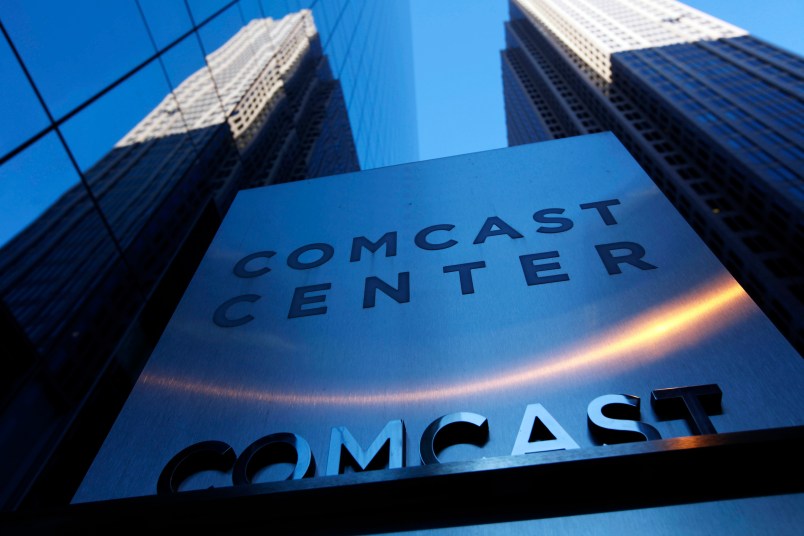LOS ANGELES (AP) — The Federal Communications Commission is set to propose new Internet rules that would allow Internet service providers to charge content companies for faster delivery of their services over the so-called “last mile” connection to people’s homes.
The agency also proposes to enhance government oversight of such deals to ensure that they don’t harm competition or limit free speech, according to a senior FCC official familiar with the matter. The official wasn’t authorized to speak publicly and spoke on condition of anonymity.
FCC Chairman Tom Wheeler is scheduled to present the proposed rules to the agency’s four other commissioners on Thursday.
So-called “net neutrality” rules have been hotly debated among policymakers, Internet providers and content companies such as Netflix. Without regulation, say consumer advocates, giant conglomerates —citing business or political reasons— could limit consumers from freely accessing certain types of content. But some policy analysts are unhappy with the FCC’s current proposal.
“The beauty of the Internet has always been its ability to serve as an unrestricted platform for all speech, giving users the ability to access the content that they choose without ISP-selected ‘fast lanes’ and ‘slow lanes,'” said Sarah J. Morris, senior policy counsel at New America, a non-partisan think tank. “A policy that encourages paid prioritization is not network neutrality, and the Commission is using a bad legal path to a terrible policy end,” she said.
The new rules are meant to replace the FCC’s open Internet order from 2010, which was struck down by a federal appeals court in January. The U.S. Court of Appeals for the Washington, D.C., Circuit affirmed that theFCC had the authority to create open-access rules but said the agency failed to establish that its 2010 regulations didn’t overreach.
While the older rules technically allowed for paid priority treatment, the practice was discouraged. The new rules spell out standards that such deals would have to meet to be considered “commercially reasonable” and are designed to survive a court challenge.
Under the proposed rules, if such a deal for priority access were challenged, the commission would look at its impact on competition, on consumers, on free speech and civic engagement. It would also try to determine whether a broadband provider was acting in good faith.
The commission will also ask for comment on how to make such dealings more transparent, but didn’t have a recommendation on the matter.
The new rules don’t affect the exchange of traffic between networks that form the Internet’s backbone. That means they won’t have any bearing on Netflix’s recent agreement to pay Comcast to improve the hand-off of traffic to its network. Netflix had called for the FCC to expand its definition of “net neutrality” rules to cover such connections and guarantee that they would be free of charge.
Internet access providers say they should be allowed to charge a content company when they have to deliver large amounts of data, such as video, to their broadband customers. Under the current system, a company like Netflix pays the provider on its end but doesn’t have to pay the provider on the subscriber’s end. The proposed rules would permit the subscriber’s Internet service provider to start charging.
Some observers believe the FCC’s proposed rules could benefit consumers in the long run.
“Allowing higher charges for faster speeds is consistent with a policy of attracting more investment to the most important network in America and improving broadband for all users,” said George Foote, a partner at the international law firm Dorsey & Whitney who works on policy matters on behalf of utility companies. “The technology that will deploy for the higher-price lanes and the technology that follows to duplicate it will accelerate better networks for all users. The FCC approach can work,” he said.
The proposed rules would also restore a previous rule that prohibits Internet service providers from blocking access to websites, which is meant to help Internet startups succeed and foster the growth of the Internet economy.
The commission is also seeking to establish the minimum standard of service and will ask the public to help determine that.
The FCC is not seeking to treat Internet providers as “common carriers” such as telephone companies, which would subject companies like Comcast and Verizon to even stricter rules, although it is keeping the option on the table.
The draft rules kick off a policymaking process that involves commissioner votes and a public comment period before a final vote sometime this summer.
Copyright 2014 The Associated Press. All rights reserved. This material may not be published, broadcast, rewritten or redistributed.






